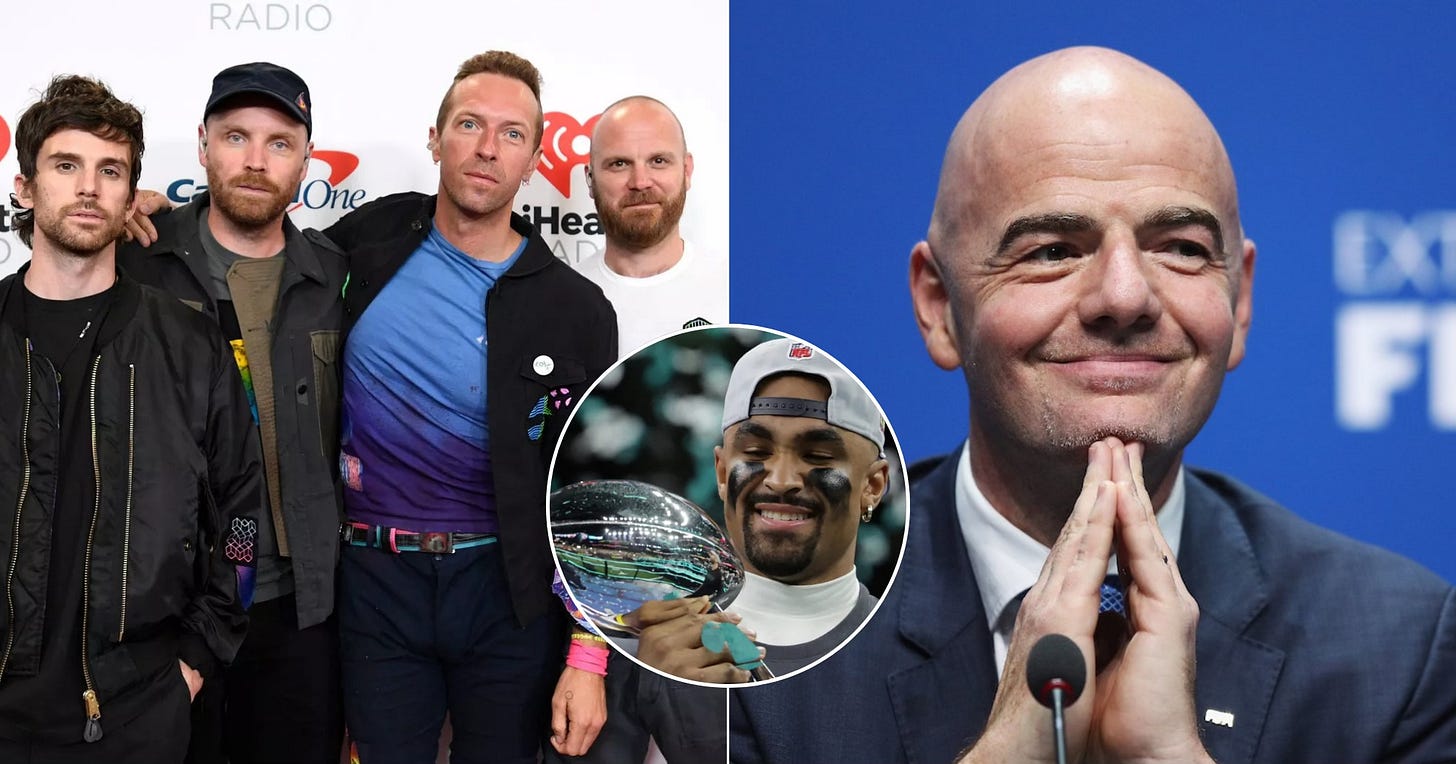FIFA World Cup Final To Feature NFL Super Bowl-Style Show For First Time
A historic fusion of football and entertainment is set for 2026, as the FIFA World Cup final debuts a Super Bowl-inspired halftime show.
FIFA is making history with a groundbreaking spectacle at the 2026 World Cup final in New Jersey. For the first time, the final will feature a full-scale halftime show, inspired by the NFL’s entertainment-driven model. FIFA President Gianni Infantino described it as a ‘historic moment,’ positioning the event as a global entertainment powerhouse, rather than just a football match. This move indicates a shift in FIFA’s strategy, broadening its appeal beyond traditional audiences.
Coldplay’s Chris Martin and Phil Harvey have been tasked with curating the musical lineup, drawing on the band’s experience in large-scale performances, including the Super Bowl. Although, FIFA remains tight-lipped about the final roster. The performance will likely showcase global musical influences, appealing to FIFA’s international audience. FIFA aims to maximise engagement and position the tournament as a unifying global spectacle.
The decision mirrors the Super Bowl, where the halftime show has transformed into a pop culture phenomenon. NFL performances have showcased icons like Prince, Madonna, and Beyoncé, drawing millions of non-sporting viewers. FIFA aims to replicate this success, enhancing commercial appeal and expanding the World Cup final’s global reach beyond traditional football fans. If executed effectively, the halftime show could become a must-see event.
This move presents a unique blend of opportunities and challenges from a marketing and PR perspective. The proposed halftime show could attract major partnership and sponsorship opportunities, boosting FIFA’s brand partnerships and commercial influence. However, it risks alienating traditional football purists who see such entertainment as a distraction. Finding the right balance is crucial to maintaining both commercial viability and sporting integrity.
Beyond sponsorship, the show strengthens FIFA’s ability to position the World Cup as a cultural event, not just a tournament. In an era where younger audiences crave spectacle-driven experiences, combining football with high-profile entertainment ensures greater social media traction and mainstream visibility. However, the move raises concerns about football’s evolving identity. Does this spectacle-driven approach enhance the game or dilute its essence?
The impact extends beyond the stadium, with FIFA planning an expansive activation in Times Square during the final weekend. This initiative amplifies the World Cup’s presence in a city renowned for its cultural significance, blending football with music, tourism, and corporate partnerships. By creating a week-long festival of sport and entertainment, FIFA aims to generate unprecedented global engagement, setting new benchmarks for fan experience and commercial success.
This move indicates FIFA’s ambitions to make the final a week-long extravaganza, rather than just a single day of football, mirroring successful models seen in events like the Olympics. Set for 19 July 2026, this first-of-its-kind halftime show signals FIFA’s ambition to make football’s biggest stage even bigger. Whether this bold integration enhances the World Cup’s prestige or shifts the focus from sport to spectacle remains to be seen.





